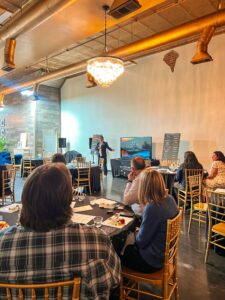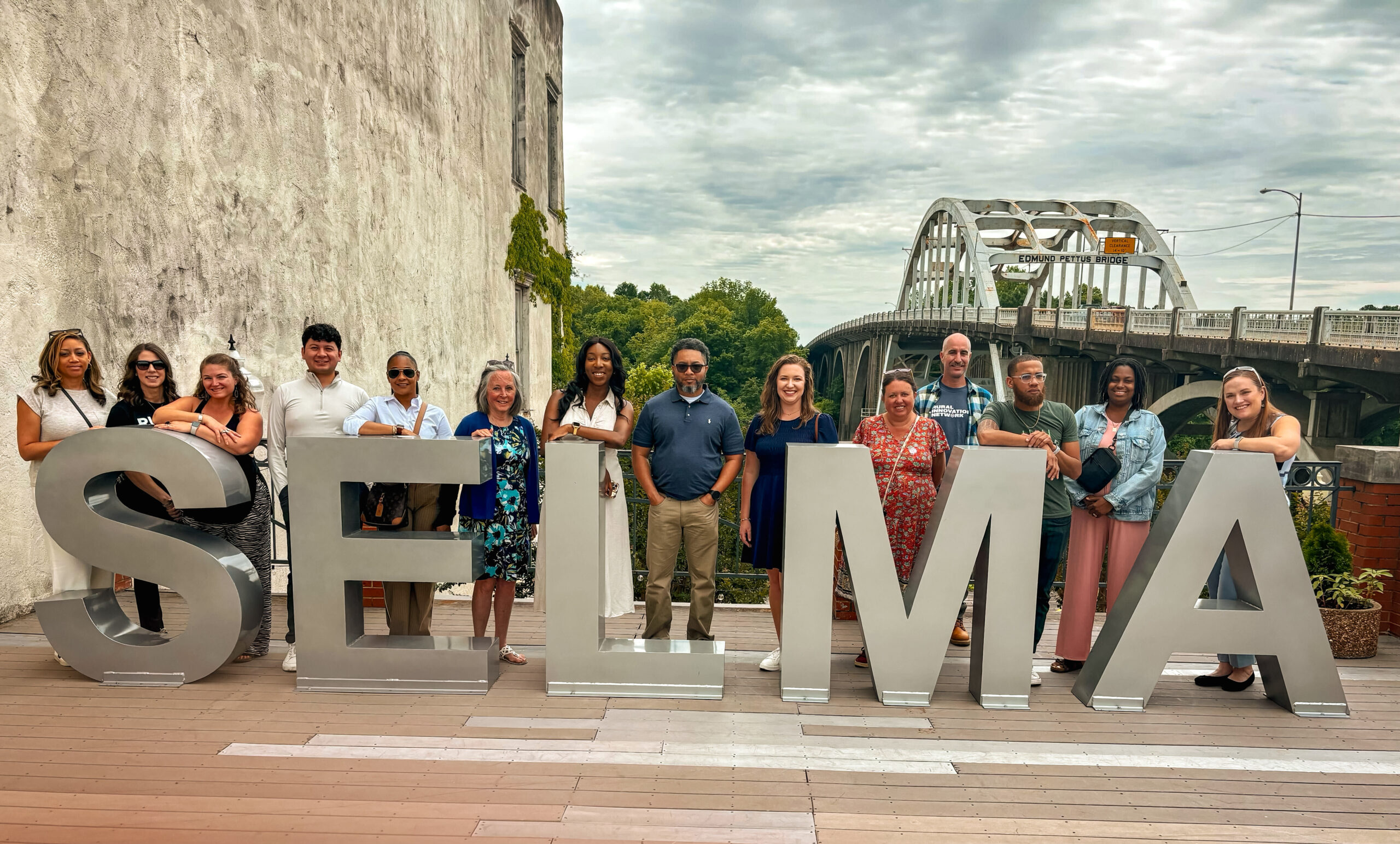
Bridging the Digital Divide: Grow Ada's Role in Advancing Rural Tech Skills
May 14, 2025 by Daniel Castaneda
By: Sunnie Dawn Baker

Rural communities face many challenges, especially when it comes to digital skilling and technological workforce development. One way that Grow Ada has been working to overcome these difficulties is by working with the Center on Rural Innovation (CORI) as a member of the Rural Innovation Network (RIN). CORI chose Ada as one of six partner communities across the country to pilot a digital skilling initiative with Ascendium. The program organizers invited Grow Ada to Selma, Alabama for the Advancing Digital Skilling in Rural America conference to meet with the other communities, learn from one another, and discuss their challenges, obstacles, and successes.
This program has been a three-year engagement process that is nearing its completion, though there is still work to be done. The program began with multiple roundtables where representatives from RIN would visit Ada and engage with local employers, educators, and other stakeholders. After the team completed this process, the communities began meeting monthly as a virtual working group to discuss what each community was doing and gain insights into what works and what doesn’t. While there will be one more visit from RIN to wrap up this grant, it was important that the individual communities come together in person to immerse themselves in this work, focusing on what their teams have already accomplished, as well as to set short-term and long-term goals. Shaniqua Corley-Moore, Head of Tech Talent Development for CORI, says of the conference, “Meeting together in Selma was deeply important because it allowed us to ground our conversations in the history, resilience, and lived realities of the communities we aim to serve. Being in person created space for authentic connection, trust-building, and collective reflection—something that’s hard to replicate virtually. It reminded us that advancing digital skilling in rural America isn’t just about programs or technology—it’s about people, place, and purpose coming together to shape a more inclusive future.”
The way forward for many rural communities is through technology and digital skilling and Selma is no exception. Sema faces significant challenges, though ripe with tremendous potential. While the historical, cultural, and economic context of Selma is different from Ada, or any other rural community, seeing how they are attempting to overcome their challenges can provide valuable lessons to those outside their community. As Daniel Castaneda and Sunnie Baker, the representatives from Grow Ada, learned about the past of Selma, they also saw the ways in which leaders and entrepreneurs in Selma are harnessing technology and innovation to improve the economic quality of the community. One entrepreneur was working on an app designed to help users explore the rich history of Selma in an effort to boost tourism. Currently, tourists will bus in to see the major historical landmarks but then stay somewhere else. If there was something like an app to guide tourists around the city, they might be tempted to stay and spend their dollars there instead of elsewhere. Wallace Community College houses an impressive initiative in digital skilling—the Best Buy Teen Tech Center. This program allows teenagers to explore a host of technological skills—everything from 3D printing to photoshop to a state-of-the-art recording booth.
After learning about Selma, the participants worked together with their teams, but also separate groups, to discuss what was going on in their communities and brainstorm about how they can improve their own initiatives. Sometimes it can be difficult to see the gaps in your own strategies, but discussion with those on the outside can illuminate possible improvements. Castaneda says, “My major takeaway from this visit is that we need to place a greater emphasis on youth engagement—specifically, understanding what types of programs they are genuinely interested in and rethinking how we approach workforce development. It’s clear that there is a generational disconnect between what young people envision as a “good job” and the traditional roles that many businesses are trying to fill. We need to shift towards more tech-focused opportunities while also bridging this gap.” While the team had consulted educators and employers, it was an eye-opening moment for Castaneda and Baker when they realized that they had never considered bringing the youth to the table, especially when one of the goals is to provide opportunities so our young people can stay and work here in Ada. To this end, Grow Ada is planning on forming a Youth Tech Coalition to fill this need.
Throughout the conversations, participants shared many other ideas that can help grow the local tech economy in Ada, including job shadowing, mentorship, and a one-stop job board. While many of the other solutions will bear fruit in the long term, the facilitators challenged the participants to think about what actions they can take in the short term to invigorate their local economies. Castaneda says, “Over the three years we’ve been part of this program, we’ve learned a lot about what works and what doesn’t in Ada. But seeing how other communities tackle similar challenges gave us fresh ideas and perspectives that we can bring back home.”
Opportunities such as this are vital for economic development and growth. It is important to meet with others and gather insights about how to improve our own community and expand our efforts to develop the workforce of the future. As the world around us changes, so does the field of economic development. Thankfully, the team at Grow Ada is ready to take on these challenges and help propel our community into the world to come.
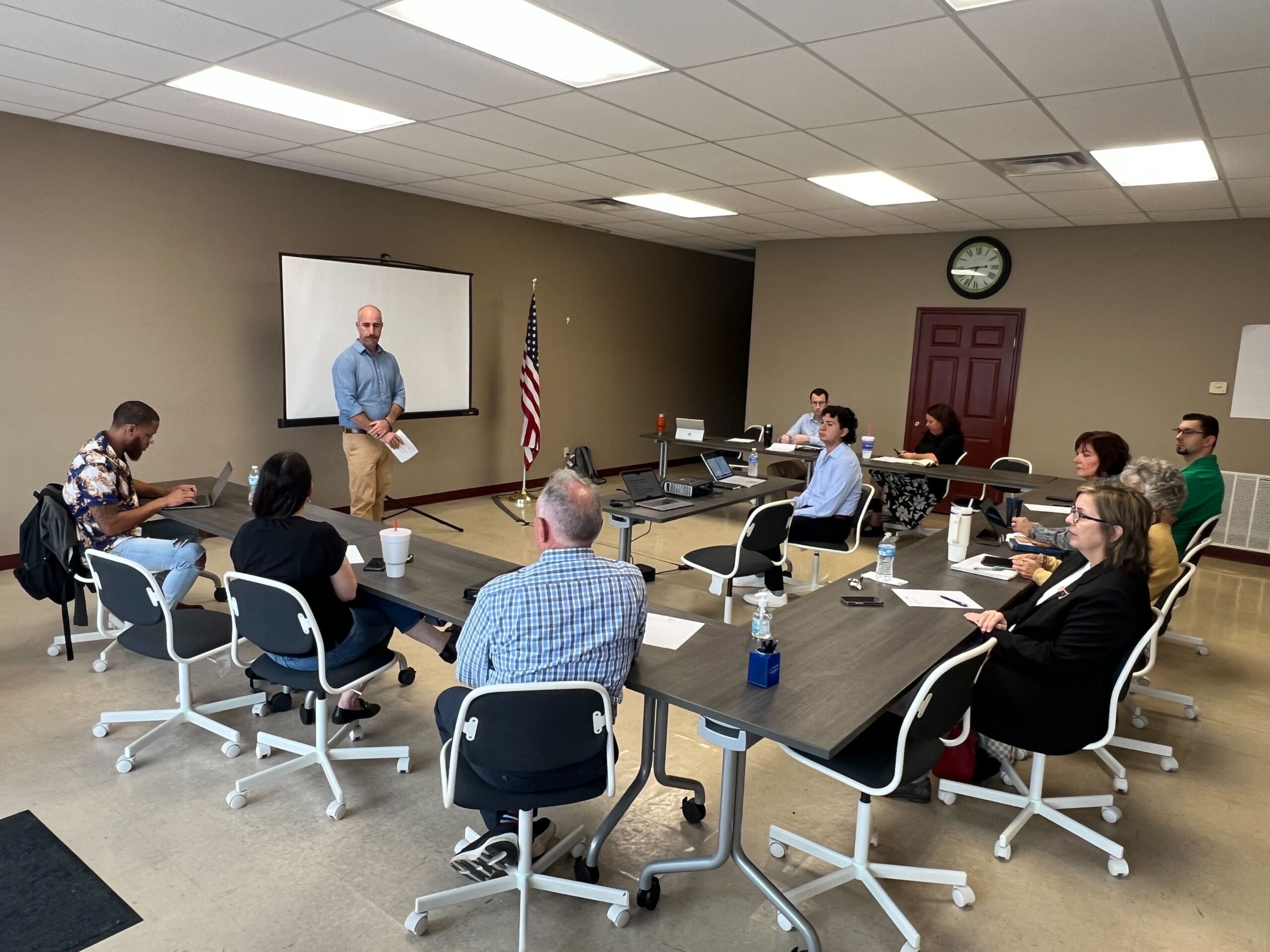
Written by
Daniel Castaneda
You may also interested in:
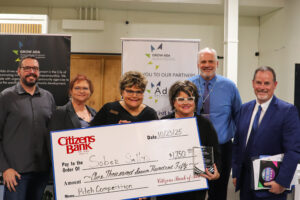
FROM TRAUMA BAY TO TECH STARTUP: HOW TWO HEALTHCARE VETERANS LAUNCHED SOBER SALLY'S TO SAVE LIVES
BY: CATHLENA SPENCER In the world of entrepreneurship, necessity is the mother of invention. For Erin Ogee and Crystal Glass, the necessity was stopping drunk driving, a mission forged from
OKA' CAMP: A DAY OF WATER, WORDS, AND WISDOM
WATERSlumber, a desolate mind, trapped with thoughts of what is and what could have been. Awakened, but not by the beauty. A lust for power has gripped the heart of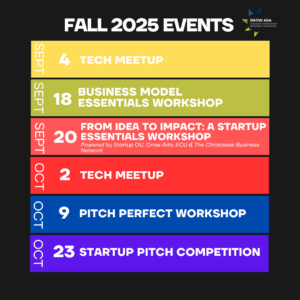
GET READY TO GROW: YOUR GUIDE TO FALL INNOVATION WITH GROW ADA
BY: CATHLENA SPENCER Have you ever wondered how a good idea becomes a great business? This fall, Grow Ada is rolling out a series of events designed to be your
BUILDING FUTURES: WORK READY ADA CELEBRATES ITS FIRST YEAR
BY: CATHLENA SPENCER Just one year ago, Work Ready Ada, a new employment readiness program, was launched in partnership with Pontotoc Technology Center (PTC). The program, funded by Oklahoma Human
AI IN EDUCATION: A CONVERSATION WITH VINAYAK MITTY
BY: SUNNIE DAWN BAKER One of the areas in technology with the most potential for entrepreneurial growth is Artificial Intelligence (AI). AI is increasingly shaping every part of our lives,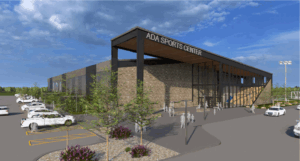
FROM PARKS TO PRODUCTIVITY: THE ECONOMIC IMPACT OF ADA'S QUALITY-OF-LIFE INVESTMENTS
BY: SUNNIE DAWN BAKER Enhancing quality of life is one of the most crucial aspects of developing a local economy. In the 21st century, many people can live and work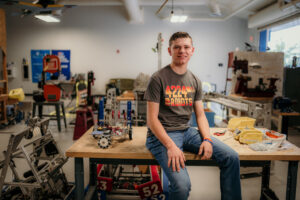
THINKING OUTSIDE THE BOX: ANDON RUSSELL, TECHNOLOGY, AND THE ENTREPRENEURIAL SPIRIT
BY: SUNNIE DAWN BAKER Andon Russell is always looking for his next entrepreneurial opportunity. He founded his own business, Russ-Tech Industries, before his freshman year of college and, despite beingMEET THE STAFF
DANIEL CASTANEDA Daniel Castaneda came to Grow Ada, formerly known as the Ada Jobs Foundation, four years ago. He holds a master’s degree in Regional and City Planning from the
KNOWLEDGE IS POWER: LOCAL EXPERT LEADS SMALL BUSINESS NETWORKING WORKSHOP
BY: SUNNIE DAWN BAKER Every month, Grow Ada hosts local Tech Meetups to help build and encourage our tech community. In some cases, there are speakers who give presentations on